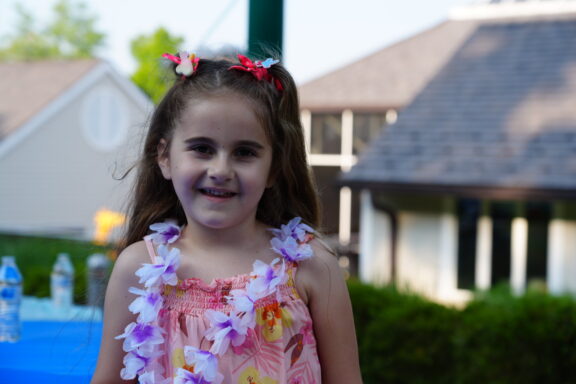
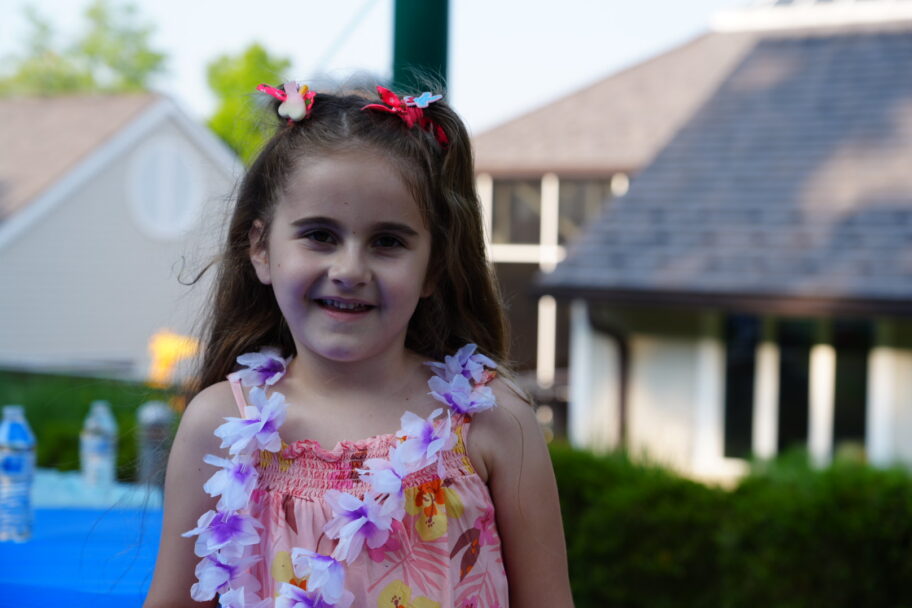
NIAID Doctors Cure Severe Neutropenia with Life-Saving Transplant
From the moment you meet her, it is impossible not to like Ellis. She greets new people with a hug and calls them her best friend within minutes. A six-year-old native of Vancouver who now lives in Canton, Georgia, Ellis is a bright and bubbly girl. She is gregarious, funny, and curious about the world around her. Fortunately for that world, she will be sticking around for a while.
“When she was born, everything was perfect until it wasn’t,” Ellis’ mother Yataa remembered. When she was about a year old, Ellis developed a persistent fever that doctors initially dismissed as nothing alarming. However, Yataa sensed something was seriously wrong, and before long, her worst fears were realized.
“At one o’clock in the morning one night, I walked into her room,” Yataa recalled. “She was out. She was vomiting in her sleep, and she was as cold as the wall, and she was chalk-white. We rushed her to the emergency room. They tested her blood and saw that there was something wrong. They rushed her into ICU, and it all began that night.”
What began was a five-year struggle first to diagnose and then treat Ellis in order to save her life. After her harrowing stay in the ICU at a Vancouver hospital, Ellis was seen by pediatricians who were unable to identify any significant issues with the child. Yataa and her husband, Marius, pushed for a hematologist to review her bloodwork and make determinations. At last, they got the attention they wanted. But the situation was dire.
Ellis was diagnosed with chronic severe neutropenia, a rare and life-threatening disorder that impacts the production of white blood cells, weakening the immune system. Already a rare disease, Ellis’ neutropenia was complicated by a genetic mutation in the SRP-54 gene, further isolating her case within the medical community.
The hematologists that Ellis’ family consulted did not offer an optimistic outlook. They told Yataa and Marius to enjoy their time with their daughter and that there was no cure or treatment. But as they discovered, that was not the case.
For two years, Yataa searched. She reached out to all the best hospitals—not just in Canada but around the globe. It became evident that a transplant could be the cure, but the uncertainty left doctors and insurance providers wary of authorizing it. In Canada, with taxpayer-funded healthcare, she was denied access to an experimental procedure. If they were to move to the United States, as they would by 2022, insurance would cover Ellis’ procedure, but doctors were unwilling to take the chance on a transplant that, as Yataa described it, “did not have a protocol.”
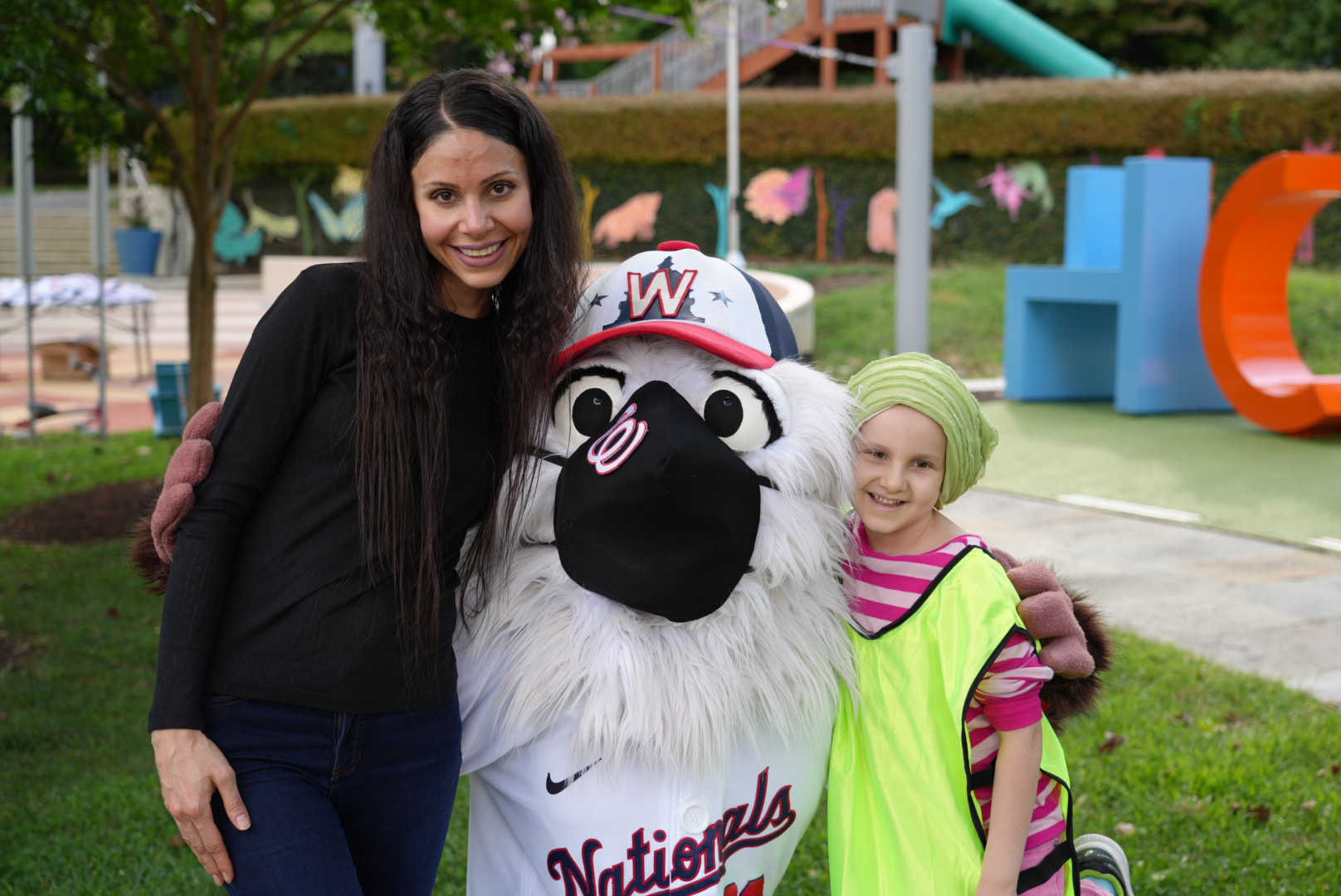
They give your child a hug. You become family. It’s not just the material support; it’s the spiritual support, the constant love.”
Yataa, Ellis’ mother
Dr. Harry Malech made the initial connection with Ellis’ family. The Chief of the Genetic Immunotherapy Section at the National Institute of Allergy and Infectious Diseases (NIAID), Dr. Malech enthusiastically accepted Ellis as a candidate for transplant at NIH. The initial meeting was in early 2020, just prior to the COVID-19 pandemic. Though the pandemic delayed Ellis’ procedure, Dr. Malech remained reassuring as Ellis’ family moved to the United States and settled in Canton, a northern suburb of Atlanta. He also introduced the family to Dr. Corina Gonzalez, who would ultimately perform the transplant. At long last, the family not only had their own faith and hope but were also seeing confidence in their doctors’ eyes.
“When you meet her, you see that she is a special doctor,” Yataa said of Dr. Gonzalez. “The power and the knowledge that she demonstrates—I did not doubt her for a second. She was so confident that this would cure Ellis. And afterward, when she looked my husband in the eyes and told him definitively that the transplant had been successful, he fell on the floor and cried. That sentence did so much. There is no doubting it. That’s it.” It wasn’t just the medical care Ellis received at NIH that made a lasting impact. Ellis and Yataa arrived at The Children’s Inn late on Mother’s Day 2023. For Yataa, walking through the doors of The Inn seemed to lift the burdens of the past five years off her shoulders. “It was late, and I didn’t expect to see anybody, but the staff immediately asked if we were hungry and needed anything like toys, books, or toiletries. The facility is amazing, but it’s also the staff—the support, love, and care. The staff sees you coming, and they give your child a hug. You become family. It’s not just the materialistic support; it’s the spiritual support, the constant love.”
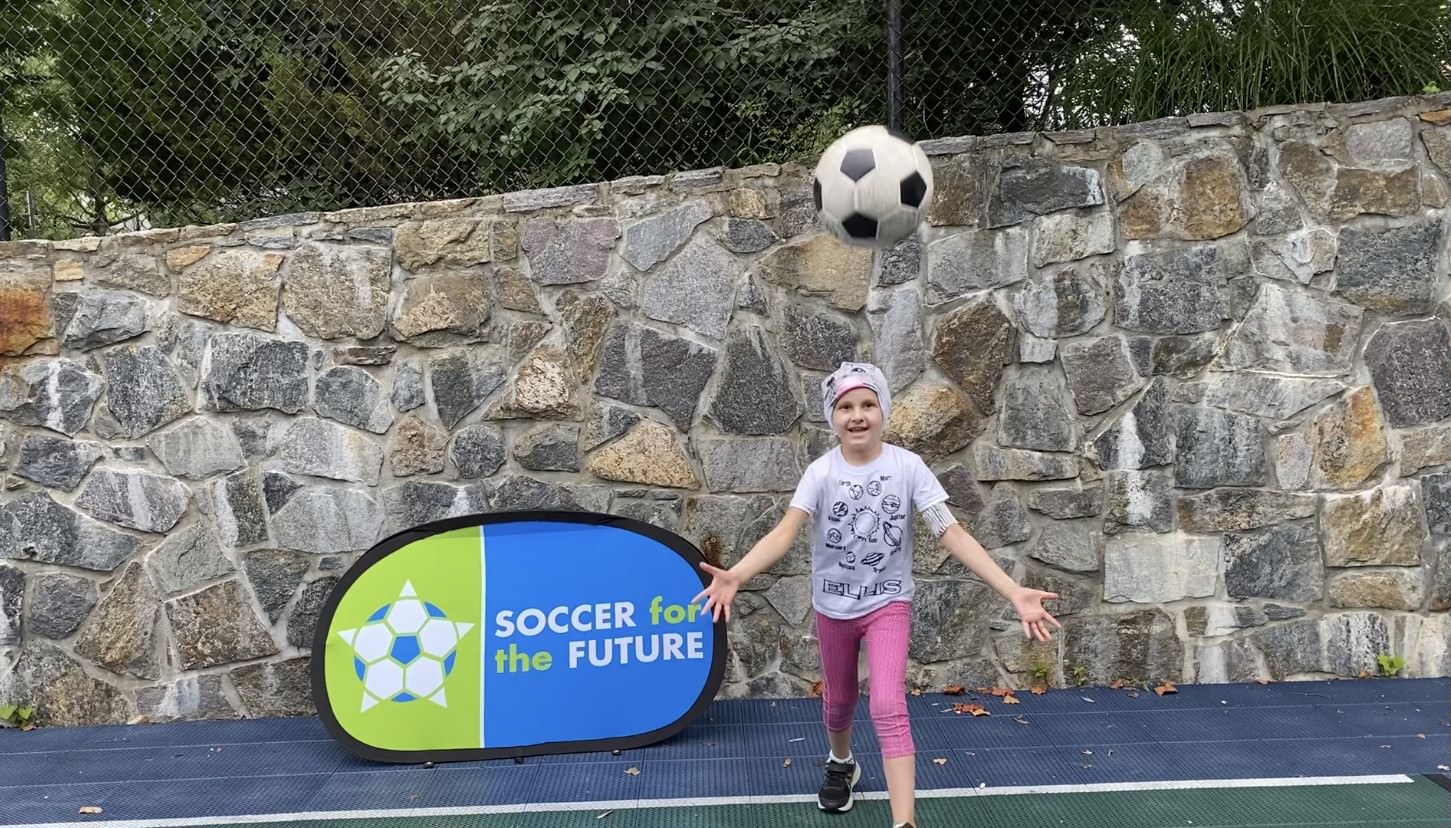
Ellis embraced life at The Inn, becoming involved in activities and wandering the halls with her mother, making new friends among the other families and the staff working in the building. With her little brother, also named Marius, back home in Georgia, Ellis had no shortage of playmates. A bright girl who would be entering first grade this year, she can already read at a third-grade level and has read the many books available to families staying at The Inn. She also loves Paw Patrol and Bluey, demonstrating some of the indefatigable energy of the puppies who star in both those shows.
On June 1, after two weeks of testing, Ellis was admitted to the Clinical Center for her transplant. Two weeks later was the big day—cell day, as Yataa calls it—when the transplanted cells of an anonymous 25-year-old female American were transplanted into Ellis’ body and took hold. During her hospital stay, Ellis developed an extraordinary bond with her doctors before and after her transplant. Yataa described how Ellis now has to seek out Dr. Gonzalez for a hug on any of their medical trips up the hill to the Clinical Center. Hearing her mother talk about this one afternoon at The Inn, Ellis said she wished she could give Dr. Gonzalez a hug that minute.
“It’s been a successful transplant,” Yataa smiled. “Her white blood cells are going up. It’s been amazing. NIH was the only place in the world that gave Ellis a chance. Otherwise, she probably wouldn’t be there. And what is major about this transplant is that there is now evidence that this would cure this disease. So, for other kids who have chronic severe neutropenia or this SRP-54 gene mutation, it would give them the option of a transplant. Because not everybody can get to NIH to get this done.”
As she recovered from her transplant, The Inn flew Ellis’ father and brother from Georgia to spend a weekend with her and Yataa. The siblings were delighted to reunite, and their parents immediately noticed her brother’s impact on her. The one problem that Ellis had encountered post-transplant was a lack of appetite. She would not eat, but when her brother was with her, she willingly ate meals alongside him. As she regained her strength, Ellis was once again a constant presence at the programs and events that took place almost daily at The Children’s Inn. A soccer player at home, she was particularly excited on the day that members of the D.C. United team came to The Inn. The precocious six-year-old appreciates the time she has been given. When asked about her favorite day at The Inn, she smiled broadly and said, “Every day is my favorite.”
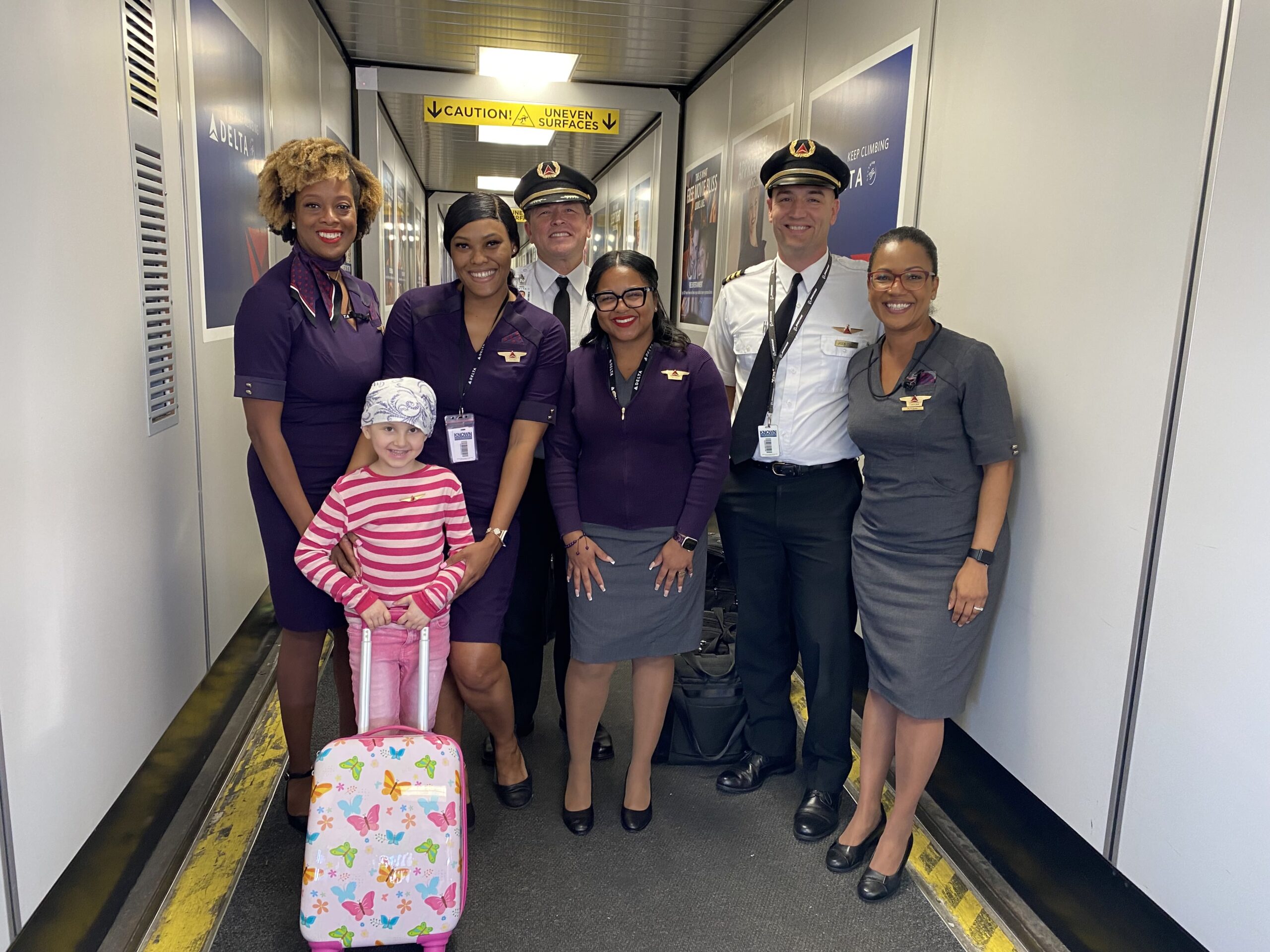
Three months after Cell Day, on September 22, Yataa and Ellis returned home to Georgia. They will be back for regular check-ups with Dr. Malech and Dr. Gonzalez, but they also look forward to settling down to a new life in the United States.
“This is the country that saved my daughter,” Yataa said. “The government of America saved a kid that is not even from this country from their own funding. That’s huge. And I have my kid to run around and play. The Children’s Inn kept me standing. You have your family, you have your friends, and you go to church. This has been like my church. You come in, and they have you surrounded, asking what you need and how they can help with anything. They have us all cared for.”

